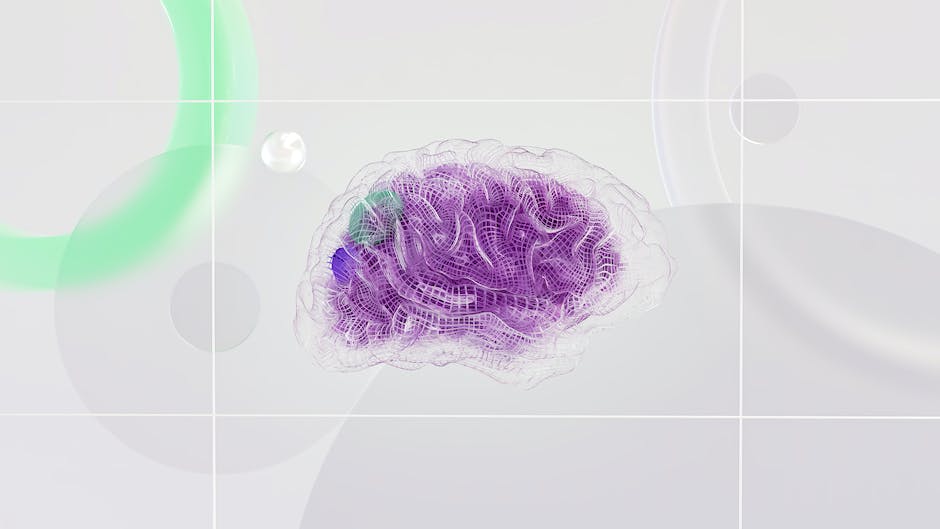No products in the cart.
Uncategorized
The Science Behind THC: How it Affects Your Brain
What is THC and how does it affect the brain?
THC, or delta-9-tetrahydrocannabinol, is the primary psychoactive compound found in cannabis. When consumed, THC interacts with receptors in the brain, specifically the cannabinoid receptors, which are part of the endocannabinoid system. This system plays a crucial role in regulating various physiological processes, including mood, memory, pain perception, and appetite. When THC binds to these receptors, it disrupts the normal functioning of neurotransmitters, leading to the characteristic effects of cannabis, such as euphoria, relaxation, altered perception of time, and increased appetite. Additionally, THC can also affect the release of dopamine, a neurotransmitter associated with pleasure and reward, which contributes to the feelings of happiness and relaxation often experienced when consuming cannabis. Understanding the science behind THC’s effects on the brain can help individuals make informed decisions about its use and potential risks.

The endocannabinoid system: Understanding the key players
Understanding the key players of the endocannabinoid system is crucial in comprehending how THC affects your brain. The endocannabinoid system is a complex network of receptors, enzymes, and endocannabinoids that work together to regulate various physiological processes. The key players in this system include cannabinoid receptors (CB1 and CB2), endocannabinoids (such as anandamide and 2-AG), and enzymes (such as FAAH and MAGL) that are responsible for the synthesis and breakdown of endocannabinoids. By understanding the roles of these key players, we can gain insight into how THC interacts with the endocannabinoid system, leading to its psychoactive effects.
The role of THC in the endocannabinoid system
The endocannabinoid system plays a crucial role in the effects of THC on the brain. THC, or tetrahydrocannabinol, is the primary psychoactive compound found in cannabis. When THC enters the body, it interacts with the endocannabinoid receptors, primarily CB1 receptors, in the brain. This interaction leads to a cascade of effects, including the release of neurotransmitters like dopamine and serotonin, which are responsible for mood regulation and pleasure. Additionally, THC can alter the communication between neurons, affecting memory, coordination, and perception. Understanding the role of THC in the endocannabinoid system is essential for comprehending the complex effects it has on our brain and overall well-being.
How THC affects neurotransmitters in the brain
THC, or delta-9-tetrahydrocannabinol, is the psychoactive compound found in cannabis that produces the euphoric and mind-altering effects commonly associated with marijuana use. When THC enters the body, it interacts with specialized receptors in the brain called cannabinoid receptors. These receptors are part of the endocannabinoid system, which plays a crucial role in regulating various physiological and cognitive processes. THC primarily binds to CB1 receptors, which are abundant in the brain, particularly in regions involved in memory, coordination, pleasure, and time perception. By activating these receptors, THC disrupts normal neurotransmitter communication, leading to altered sensations, impaired memory, and changes in mood and cognition. Understanding how THC affects neurotransmitters in the brain provides valuable insights into the complex mechanisms underlying its psychoactive effects.
The impact of THC on different brain regions
The impact of THC on different brain regions is a fascinating area of study that sheds light on how this compound affects our cognitive and emotional functions. When THC enters the bloodstream, it quickly crosses the blood-brain barrier and binds to cannabinoid receptors in various brain regions. In the hippocampus, THC disrupts memory formation and retrieval, which can lead to short-term memory impairment. In the basal ganglia, THC affects motor control and coordination, resulting in the characteristic “stoned” feeling. Additionally, THC activates the reward system in the brain, increasing dopamine release and producing feelings of euphoria. Understanding the specific effects of THC on different brain regions can help us better comprehend its potential therapeutic uses and the potential risks associated with its recreational use.
Short-term effects of THC on cognition and behavior
The short-term effects of THC on cognition and behavior are fascinating to explore. When THC enters the brain, it binds to cannabinoid receptors, primarily in the regions responsible for memory, attention, and decision-making. This binding disrupts the normal communication between neurons, leading to impaired cognitive function and altered behavior. Research has shown that THC can impair short-term memory, attention, and judgment, making tasks such as driving or operating machinery risky. Additionally, THC can induce feelings of euphoria and relaxation, but it can also cause anxiety, paranoia, and even psychosis in some individuals. Understanding the science behind these effects is crucial for responsible and informed cannabis use.
Long-term effects of THC on brain structure and function
The long-term effects of THC on brain structure and function are a topic of great interest in the field of neuroscience. THC, the main psychoactive component of cannabis, has been found to have both short-term and long-term effects on the brain. Studies have shown that chronic marijuana use can lead to structural changes in certain regions of the brain, such as the hippocampus and prefrontal cortex, which are involved in memory, learning, and decision-making. Additionally, THC can impact brain function by altering neurotransmitter release and disrupting the endocannabinoid system. Understanding these effects is crucial for making informed decisions about marijuana use and for developing effective treatments for cannabis-related disorders.
The potential therapeutic benefits of THC
THC, or delta-9-tetrahydrocannabinol, is the primary psychoactive compound found in cannabis. While THC is often associated with its recreational use, it also holds significant potential therapeutic benefits. When THC enters the body, it interacts with the endocannabinoid system, a complex network of receptors and neurotransmitters found throughout the brain and body. This interaction can have various effects on the brain, including pain relief, relaxation, and mood elevation. Additionally, THC has been studied for its potential anti-inflammatory, antiemetic, and neuroprotective properties. Understanding the science behind THC and its effects on the brain is crucial for exploring its potential as a therapeutic agent.
Risks and side effects of THC use
Risks and side effects of THC use should be understood to make informed decisions about its consumption. While THC, the primary psychoactive compound in cannabis, can have therapeutic benefits, it also carries potential risks. Regular use of THC can lead to cognitive impairments, such as memory and attention deficits, especially in adolescent users. Additionally, excessive consumption may result in anxiety, paranoia, and even psychosis in susceptible individuals. It is crucial to be aware of these potential side effects and to use THC responsibly, considering individual tolerance and sensitivity. Consulting with a healthcare professional can help ensure a safe and informed approach to THC consumption.
Conclusion: Understanding the science behind THC’s effects on the brain
Understanding the science behind THC’s effects on the brain is crucial for anyone interested in the world of cannabis. THC, or delta-9-tetrahydrocannabinol, is the primary psychoactive component of cannabis, responsible for its mind-altering effects. When THC enters the body, it binds to specific receptors in the brain called cannabinoid receptors, mainly found in areas involved in memory, pleasure, coordination, and time perception. This interaction leads to a cascade of effects, including the release of dopamine, a neurotransmitter associated with reward and pleasure. Additionally, THC can impair short-term memory, alter sensory perception, and affect motor coordination. By understanding the science behind THC’s effects on the brain, individuals can make informed decisions about cannabis use and appreciate its potential benefits and risks.

